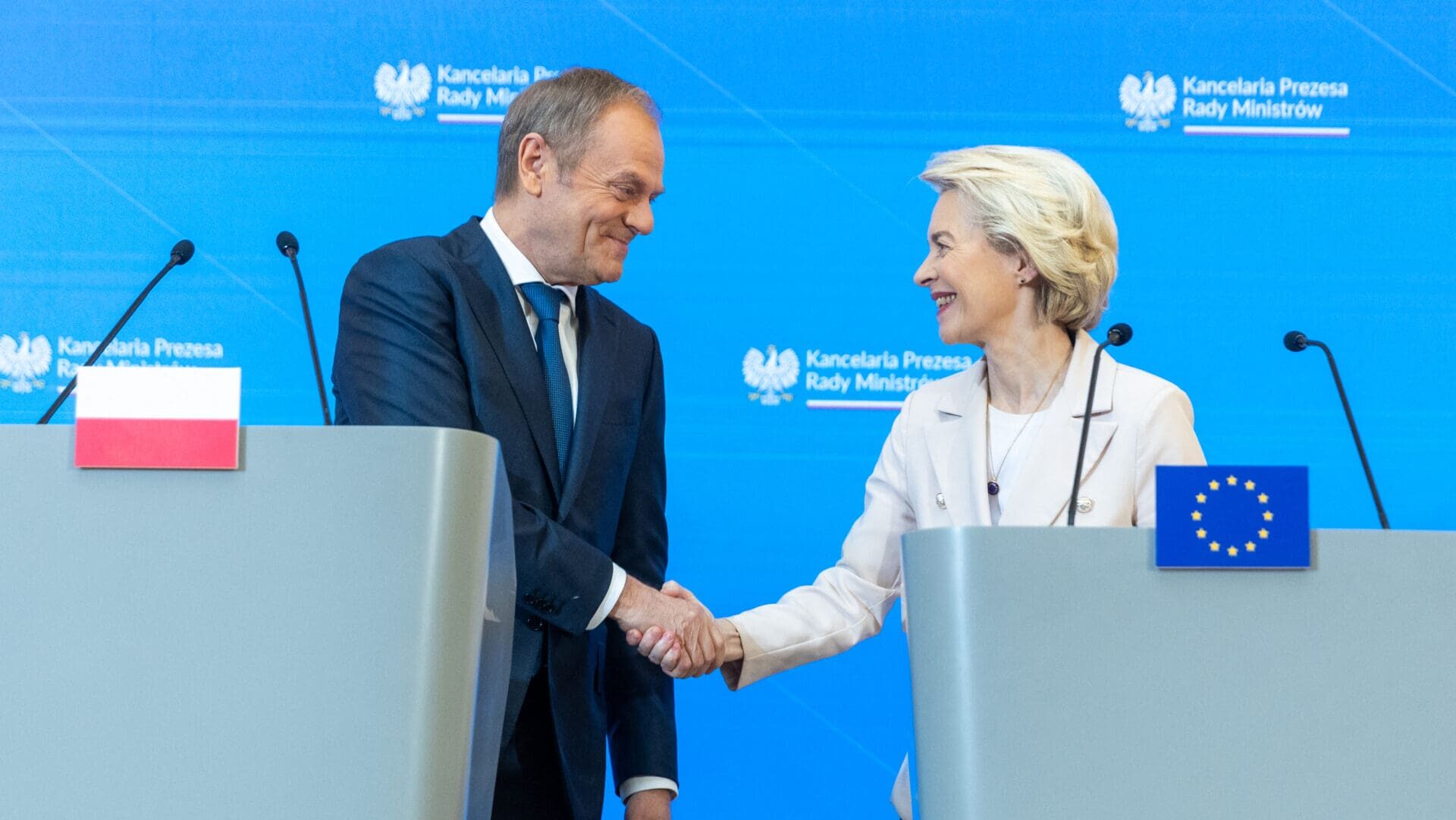There are growing signs that the European Commission may end the Article 7 procedure against Poland. Commission President Ursula von der Leyen recently posted on X, stating: ‘Today, marks a new chapter for Poland. After more than 6 years, we believe that the Article 7 procedure can be closed. I congratulate PM Donald Tusk and his government on this important breakthrough. This is a result of Poland’s hard work and determined reform efforts.’
Ursula von der Leyen on Twitter: “Today, marks a new chapter for Poland. After more than 6 years, we believe that the Article 7 procedure can be closed. I congratulate PM @donaldtusk and his government on this important breakthrough. This is a result of 🇵🇱 hard work and determined reform efforts. / Twitter”
Today, marks a new chapter for Poland. After more than 6 years, we believe that the Article 7 procedure can be closed. I congratulate PM @donaldtusk and his government on this important breakthrough. This is a result of 🇵🇱 hard work and determined reform efforts.
Balázs Orbán, the political director of the Hungarian Prime Minister, also reacted to the news. In a Facebook post, he wrote: ‘The Commission has clearly made a political decision in favour of the Tusk cabinet. It acknowledges that, despite many demands previously made against the Morawiecki cabinet remaining unmet by the Tusk administration, it still favours them.’ Balázs Orbán noted that the European Commission based its decision on a brief action plan of only two and a half pages, primarily addressing judicial issues. He added that so far,
only one legal act from this plan has been implemented.
Viktor Orbán’s political director also presented a concrete commitment concerning the members of the National Council of the Judiciary, as outlined in the action plan. According to the commitment, the mandate of the judges elected by the Sejm in 2022 would end on the day new members are elected by their fellow judges. Balázs Orbán highlighted that this arrangement raises significant concerns about the rule of law and criticized the European Commission for remaining silent on these issues and presenting the plan in a positive light. In his sarcastic Facebook card, he commented: ‘The secondary school leaving exam in maths was held yesterday, so let me show you Brussels’ secret formula: left-wing government + 2.5 pages of an action plan = scrapping of the rule of law procedure.’
The conclusion of the Article 7 procedure would enable Warsaw to regain access to €137 billion in EU funds, which had been previously blocked due to alleged rule-of-law concerns.
With Poland no longer subject to Article 7 proceedings, Hungary would remain the only EU country still under this scrutiny. Initiated by the European Commission in 2018 upon a proposal from the European Parliament, these proceedings could potentially lead to Hungary losing its voting rights within the EU.
The decision by the Commission to propose the closing of the procedure against Polish clearly shows that
Brussels is applying double standards in treating Member States.
A favourable approach seems to depend on whether the leadership of the member state in question aligns with the preferences of the Brussels elite. As the European elections approach, such ‘rewarding’ practices are becoming more overt.
‘Less than half year of the new government in power and you can observe a decline of rule of law. This is what the liberal elites want. You can do anything as long as you’re one of them, as long you’re part of the Brussels mainstream, a perfect example for that is the frozen EU funds due to Poland. We could see clearly that there was no factual reason to froze those funds for Poland. Because the moment Tusk took over power, they gave him the money. He didn’t adopt any new law. He didn’t change anything in regards to the EU funds,’
Polish Law and Justice (PiS) MEP Radosław Fogiel pointed out in a recent interview with Hungarian Conservative.
The silence of both the Commission and the European Parliament regarding the unprecedented attack on Polish public media in December of last year signals preferential treatment towards the liberal Polish government. Manfred Weber, leader of the European People’s Party (EPP), even stated in an earlier interview with the Polish news agency PAP that he fully supports Donald Tusk and his government. ‘It’s enough to look at what is happening in Poland and the reactions in Brussels [to dispel] any doubts about what kind of incorrect, hypocritical, and double-standard gang rules Brussels,’ Gergely Gulyás, the minister leading the Prime Minister’s Office commented earlier.
Related articles:








